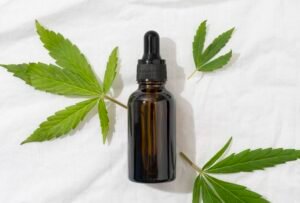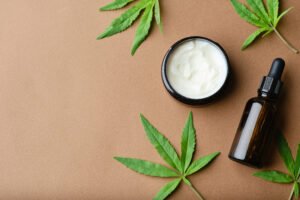Research exploring the interplay between caffeine and cannabis is still in its infancy. However, the limited knowledge we have suggests that combining caffeine and cannabis may create a distinct experience compared to using them individually. While robust evidence to confirm a counteraction is lacking, there are intriguing possibilities worth exploring.Simultaneous consumption of caffeine and cannabis could result in a unique synergy. Some users speculate that the calming effects of marijuana might help offset the jitters induced by caffeine. This potential interaction is a point of interest among those curious about the dynamic between these two substances.
It’s worth noting that mixing caffeine pills with cannabis might yield different effects than combining cannabis with traditional caffeinated beverages like tea or coffee. Tea, for example, contains L-theanine, a compound known for its calming properties. L-theanine can mitigate the stimulating effects of caffeine to some extent. Additionally, there’s evidence suggesting that L-theanine may help reduce certain adverse effects of THC on memory and cognitive function. Coffee, on the other hand, contains trigonelline, a compound with a range of beneficial properties, including neuroprotection, anti-migraine, antimicrobial, and anti-tumor effects. Interestingly, cannabis also contains trigonelline. Therefore, when cannabis is consumed alongside coffee, there may be an enhancement of some of these desirable properties. The interplay between coffee and cannabis presents an intriguing avenue for further exploration.
Also Read: Marijuana for sleep
As research in this area continues to evolve, it’s important to remember that the effects of caffeine and cannabis can vary significantly from person to person. Factors like individual tolerance, dosage, and the specific strains or types of cannabis used can all play a role in shaping the overall experience. Whether you’re seeking relaxation or a boost in energy, experimenting with the combination of caffeine and cannabis should be approached with care and a keen awareness of your body’s responses.While we await further scientific investigation into this intriguing relationship, users are encouraged to use caffeine and cannabis together responsibly and, if needed, seek guidance from healthcare professionals to ensure a safe and enjoyable experience.
What Is Caffeine?
Caffeine, a well-known psychoactive stimulant, is frequently employed as a cognitive enhancer by people worldwide. A 2014 study revealed that approximately 85% of the U.S. population consumes at least one caffeinated beverage each day, including popular options like coffee, energy drinks, and Guayana tea. It’s important to note that caffeine is not limited to beverages; it can also be found in sources such as chocolate, supplements, and certain flavoring plants, providing various ways for individuals to incorporate caffeine into their daily routines.
How Caffeine Affects the Body
Caffeine is a widely used psychoactive stimulant known for its ability to affect the human body in various ways. Its primary role is to stimulate the central nervous system, resulting in increased alertness and wakefulness. This stimulating effect is achieved by caffeine binding to specific receptors, effectively blocking the uptake of adenosine, a neurotransmitter responsible for promoting feelings of tiredness and the urge to sleep as it accumulates throughout the day. Beyond its role in combating drowsiness, caffeine can also elevate adrenaline levels in the bloodstream and enhance the activity of dopamine and norepinephrine, neurotransmitters closely associated with alertness, focus, and feelings of well-being. These interactions between caffeine and the body’s neurotransmitters are fundamental to understanding the influence of caffeine and cannabis when used in conjunction.
Also Read: Marijuana for Depression and Bipolar Disorder
In addition to its immediate effects, regular and moderate caffeine consumption has been linked to potential long-term benefits related to concentration and memory. Some research even suggests a connection between chronic caffeine use and a reduced risk of developing neurological disorders such as Alzheimer’s disease and Parkinson’s disease. Part of this neuroprotective effect may be attributed to chlorogenic acid, a compound present in both tea and coffee, known for its neuroprotective and antioxidative properties.
However, it’s important to approach caffeine with moderation, as excessive intake can lead to a range of side effects, including heightened anxiety, physical tremors (shakes), an increased heart rate, temporary elevation of blood pressure, sensations of nausea or heartburn, headaches, and difficulties falling asleep (insomnia). These potential side effects underscore the significance of understanding how caffeine and cannabis may interact when used simultaneously, given their shared ability to influence the central nervous system and affect alertness, mood, and cognitive function.Caffeine’s impact on the human body extends beyond a simple energy boost. Its intricate interactions with neurotransmitters and potential long-term benefits make it a fascinating substance, but its effects can be both positive and negative, depending on the level of consumption. Recognizing these effects is crucial for responsible caffeine use, especially when considering the concurrent use of caffeine and cannabis and how they may influence one another’s effects.
Potential Benefits of Mixing Cannabis and Caffeine
While the research on the combination of caffeine and cannabis is still relatively limited, there are indications that suggest potential benefits stemming from how adenosine and the endocannabinoid system interact. This interaction may lead to unique effects when both substances are consumed together.One potential benefit could be related to the cognitive impairment caused by THC in cannabis. Caffeine might mitigate this impairment, potentially resulting in improved focus while still allowing individuals to experience the other therapeutic effects of cannabis.
The presence of CBD in a cannabis product can influence whether it acts as a depressant or stimulant. The impact on the stimulant effects of caffeine can vary depending on the specific strain or cultivar of cannabis used.
Also Read: Granddaddy Purple Strain
An animal study conducted in 2011 observed how monkeys responded to cannabis access when given a small dose of caffeine (one milligram). The findings revealed that monkeys with caffeine access were less likely to consume cannabis, suggesting a potential influence of caffeine on cannabis consumption.Additionally, a study from 2017 indicated that caffeine and cannabis could increase dopamine levels in the brain, although through different mechanisms. When taken together, it’s proposed that caffeine and cannabis may produce an enhanced sense of euphoria and happiness.
Furthermore, CBD may have a role in reducing shakiness or tremors that can occur after consuming high doses of caffeine. A 2020 animal study involving mice found that CBD reduced locomotor sensitivity in mice that had been given caffeine, resulting in slower movement.While these studies offer intriguing insights into the potential benefits of combining caffeine and cannabis, further research is needed to fully understand the complex interactions between these substances and their effects on the human body. It’s essential to approach the combination of caffeine and cannabis with caution and moderation, as individual responses can vary.
Potential Risks of Mixing Cannabis and Caffeine
1. Memory Effects: A previous study discovered that while THC can impair memory and caffeine may enhance short-term memory, when combined in low doses, they produce memory deficits similar to those induced by high levels of THC. This suggests that the interaction between caffeine and THC may not be advantageous for memory function.
Also Read: Berry White Strain
2. Increased Heart Rate: Both caffeine and marijuana are known to increase heart rate. When used together, this can lead to a more pronounced increase in heart rate, which might be problematic for individuals with underlying heart conditions or issues with arrhythmia. It’s important to consider this potential risk, especially for those with preexisting heart problems.
Understanding these potential risks is essential when combining caffeine and cannabis. It’s advisable to be mindful of your individual tolerance and reactions to these substances and to consult with a healthcare professional if you have concerns, particularly if you have a history of heart issues or are using cannabis for its therapeutic properties.
FAQs
Q. Is it safe to consume caffeine and cannabis together?
A. While research on this combination is still in its early stages, it’s generally considered safe for most people. However, individual tolerance and potential side effects should be considered, especially if you have underlying health concerns.
Q. Are there potential benefits to combining caffeine and cannabis?
A. Some evidence suggests that combining these substances may improve focus and cognitive impairment caused by THC, potentially enhancing the overall experience. The interaction between adenosine and the endocannabinoid system could lead to unique effects.
Q. Can the amount of CBD in cannabis products influence the effects of caffeine and cannabis?
A. Yes, the CBD content in cannabis products can impact the stimulant or depressive effects. Different strains may produce varying results when combined with caffeine. Finding the right balance is key.
Q. Are there any risks to be aware of when combining caffeine and cannabis?
A. Memory deficits and an increased heart rate are potential risks. Studies have shown that low doses of both substances could impair memory, and the combined effect on heart rate might be concerning for those with heart conditions.
Q. Should I consult a healthcare professional before combining caffeine and cannabis?
A. If you have any underlying health issues or concerns, it’s advisable to consult with a healthcare professional. They can provide personalized guidance and ensure that this combination is safe for you.
Q. What are some common side effects of consuming caffeine and cannabis together?
A. Side effects may include an increased heart rate, potential memory deficits, and variations in the overall experience. It’s important to monitor your body’s response and adjust your consumption accordingly.








